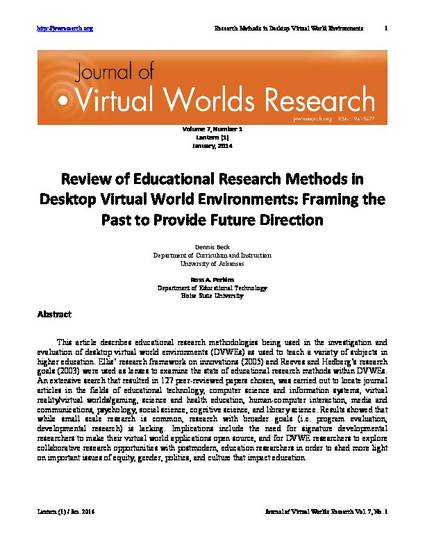
This article describes educational research methodologies being used in the investigation and evaluation of desktop virtual world environments (DVWEs) as used to teach a variety of subjects in higher education. Ellis’ research framework on innovations (2005) and Reeves and Hedberg’s research goals (2003) were used as lenses to examine the state of educational research methods within DVWEs. An extensive search that resulted in 127 peer-reviewed papers chosen, was carried out to locate journal articles in the fields of educational technology, computer science and information systems, virtual reality/virtual worlds/gaming, science and health education, human-computer interaction, media and communications, psychology, social science, cognitive science, and library science. Results showed that while small scale research is common, research with broader goals (i.e. program evaluation, developmental research) is lacking. Implications include the need for signature developmental researchers to make their virtual world applications open source, and for DVWE researchers to explore collaborative research opportunities with postmodern, education researchers in order to shed more light on important issues of equity, gender, politics, and culture that impact education.
This document was originally published by in Journal of Virtual Worlds Research. This work is provided under a Creative Commons Attribution License 3.0. Details regarding the use of this work can be found at: http://creativecommons.org/licenses/by/3.0/. doi: 10.4101/jvwr.v7i1.7077
Available at: http://works.bepress.com/ross_perkins/15/
